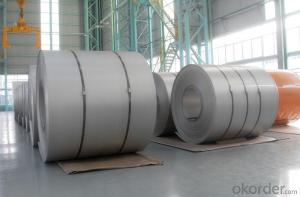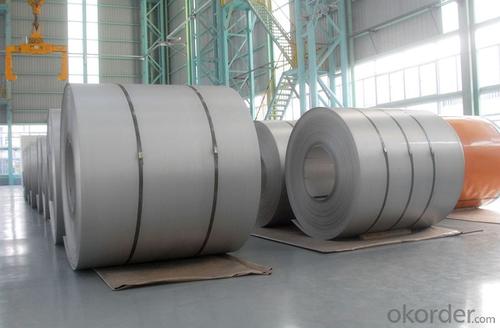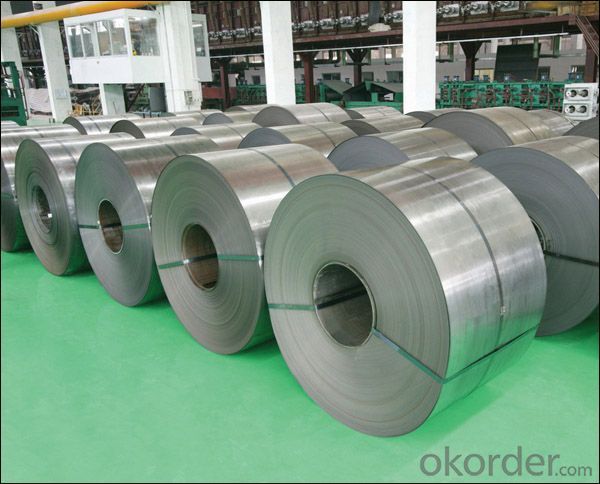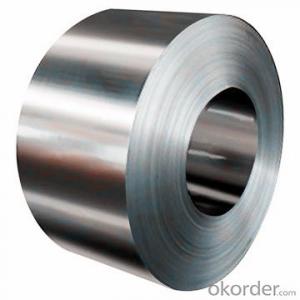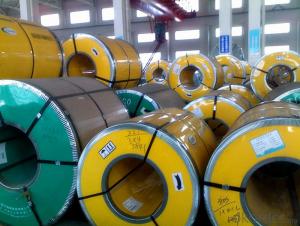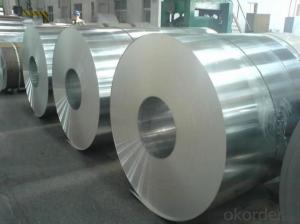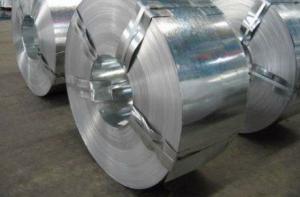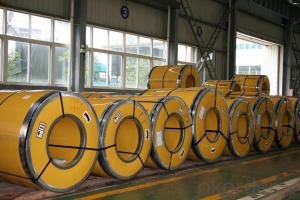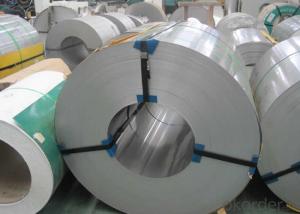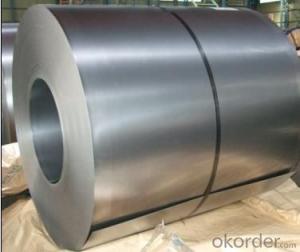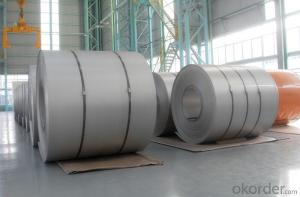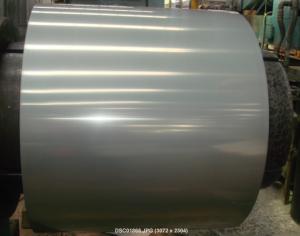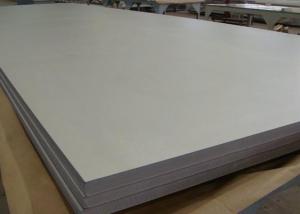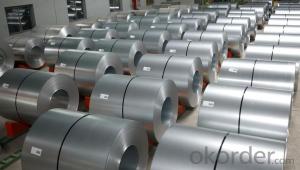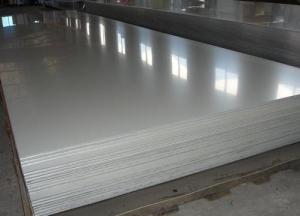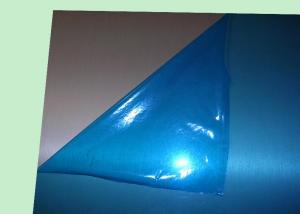430 SERIOUS HOT ROLLED STAINLESS STEEL COIL
- Loading Port:
- Guangzhou
- Payment Terms:
- TT OR LC
- Min Order Qty:
- 100 m.t.
- Supply Capability:
- 10000 m.t./month
OKorder Service Pledge
OKorder Financial Service
You Might Also Like
Quick Details
| Standard: | AISI,ASTM,DIN,GB,JIS | Grade: | 400 series | Thickness: | 0.25-2.0mm |
| Place of Origin: | Guangdong China (Mainland) | Brand Name: | CMAX | Model Number: | SUS430 |
| Type: | Steel Coil | Technique: | Cold Rolled | Surface Treatment: | 2B, BA, HL, NO.4 |
| Application: | Utensils, kitchenware, cutlery, pots & bowls, sinks, gas stove etc. | Width: | 800-1300mm | Length: | As requested |
| Market: | Asia, Mid East, South America etc. | Form available: | coil/ panel/ strip/ sheet | Sample: | Available |
| Packing: | PVC film with wooden pallet | Hardness: | From full hard to DDQ | Edge: | Mill edge/ Slitting edge |
| Feature: | Clean & corrosion resistance | Cr content: | 16%-18% | Steel type: | Ferrite stainless steel |
| Product name: | Cheap Cold Rolled Stainless Steel Coil 430 |
Packaging & Delivery
| Packaging Detail: | Standard export package, pvc film with wooden pallet. |
| Delivery Detail: | 15-30 days after receiving deposit |
Specifications
Cheap cold rolled stainless steel coil 430
Manufacturer
Origin: Baosteel, Tisco, Jisco
High technology & advanced equipment
Product Description
Cheap Cold Rolled Stainless Steel Coil 430 / ss430
| Item name | Cheap Cold Rolled Stainless Steel Coil 430 |
| Grade | 400 series |
| Type | Steel coil |
| Origin | CHINA |
| Standard | AISI,ASTM,DIN,GB,JIS |
| Thickness | 0.25mm-2.0mm |
| Width | 800-1300mm |
| Length | As requested |
| Surface treatment | BA, 2B, HL, No.4 |
| Edge | Mill edge/ slitting edge |
| Hardness | Full hardness to DDQ |
| Application | Utensils, kitchenware, cutlery, pots & bowls, sinks, food industry, construction decorations etc. |
| Package | Standard export package, PVC film with wooden pallet |
| Payment terms | T/T, 20% deposit in advance, balance against copy of B/L |
| Delivery time | 15-30 days after receiving the deposit |
- Q: How are 111 stainless steel strips manufactured?
- The manufacturing process for 111 stainless steel strips encompasses several stages. Initially, raw materials are carefully chosen, typically including iron ore, chromium, nickel, and other alloying elements. These materials are precisely measured and blended in the desired proportions to create the stainless steel alloy. Subsequently, the raw materials are melted in a high-temperature furnace. The resulting molten metal is then poured into a continuous casting machine, which shapes it into long slabs or billets. These slabs are allowed to cool and solidify. Once solidified, the slabs are reheated in a furnace to a specific temperature, rendering them more malleable. They are then passed through a hot rolling mill, where they are reduced in thickness and elongated into long strips. The rolling process is repeated multiple times until the desired thickness and quality are achieved. When the strips reach the desired thickness, they undergo annealing in a heat treatment furnace. Annealing helps alleviate internal stresses and enhance the mechanical properties of the stainless steel. This process involves heating the strips to a specific temperature and gradually cooling them. To improve the surface finish and eliminate imperfections, the strips are subjected to a pickling process. This entails immersing them in an acid solution that removes scale, oxides, and other impurities from the surface. Following pickling, the strips undergo a cold rolling process. This involves passing them through a series of high-pressure rollers, further reducing their thickness and enhancing their surface finish. To attain the desired dimensions and tolerances, the strips are subsequently cut into the required lengths using shearing or slitting machines. Depending on the specific application requirements, they may also undergo additional processes such as edge trimming, edge rounding, or surface polishing. Finally, the finished stainless steel strips undergo a thorough quality inspection, which includes checking for dimensional accuracy, surface defects, and mechanical properties. They are then carefully packaged and prepared for shipment to customers across various industries, such as automotive, construction, appliances, and many more.
- Q: Can stainless steel strips be used in HVAC applications?
- Certainly, HVAC applications can indeed utilize stainless steel strips. Stainless steel, known for its high durability and resistance to corrosion, proves to be an ideal material for HVAC systems that are exposed to moisture, chemicals, and fluctuating temperatures. In fact, fabricating HVAC components like ducts, pipes, fittings, and heat exchangers frequently involves the use of stainless steel strips. These strips offer exceptional strength, longevity, and resistance to rust and corrosion, ensuring the HVAC system's reliability and efficiency in the long run. Furthermore, stainless steel's sanitary properties make it suitable for cleanroom environments or for handling delicate materials. All in all, stainless steel strips prove to be a versatile and dependable choice for various HVAC applications.
- Q: How do stainless steel strips compare to other materials like aluminum or carbon steel?
- Stainless steel strips offer several advantages when compared to other materials like aluminum or carbon steel. Firstly, stainless steel is highly resistant to corrosion, making it an ideal choice for applications in harsh environments or where exposure to moisture is common. This corrosion resistance is due to the presence of chromium, which forms a protective oxide layer on the surface of the steel. Additionally, stainless steel strips have excellent strength and durability, making them suitable for various structural applications. They can withstand high temperatures and exhibit good mechanical properties, such as high tensile strength and impact resistance. This makes stainless steel strips a reliable choice for industries where strength and durability are crucial, such as construction, automotive, or aerospace. Another advantage of stainless steel is its hygienic properties. It is non-porous and easy to clean, preventing the growth of bacteria or other contaminants. This makes stainless steel strips commonly used in food processing, medical equipment, or pharmaceutical industries. Moreover, stainless steel strips offer an attractive aesthetic appeal due to their smooth and shiny surface finish. They can be easily polished or brushed to achieve different visual effects, making them popular in architectural and decorative applications. In comparison, aluminum is lighter in weight than stainless steel but lacks the same level of strength and durability. Aluminum is also more prone to corrosion, especially in acidic or alkaline environments. On the other hand, carbon steel is less expensive than stainless steel but lacks the same level of corrosion resistance. Carbon steel is also more susceptible to rusting and requires regular maintenance to prevent corrosion. In summary, stainless steel strips excel in terms of corrosion resistance, strength, durability, hygienic properties, and aesthetic appeal when compared to materials like aluminum or carbon steel. However, the choice of material ultimately depends on the specific requirements of the application, considering factors such as cost, weight, and environmental conditions.
- Q: Are stainless steel strips non-magnetic?
- No, stainless steel strips are not inherently non-magnetic. The magnetic properties of stainless steel strips depend on the specific composition and processing methods used in their production. Some stainless steel alloys can be magnetic, while others are non-magnetic.
- Q: What are the common uses of stainless steel strips in the food packaging industry?
- Due to their unique properties and capabilities, stainless steel strips have various common uses in the food packaging industry. These include the following: 1. Sealing: Stainless steel strips are frequently employed to seal food packaging materials like plastic bags or containers. Their strength and durability guarantee a tight and secure seal, preventing any leakage or contamination. 2. Fastening: These strips are also utilized to fasten different components of food packaging machinery or equipment. Their resistance to corrosion and high temperatures makes them suitable for this purpose, ensuring a secure and long-lasting connection. 3. Conveyor Systems: Within the food packaging industry, stainless steel strips are widely used in constructing conveyor systems. They provide a smooth and hygienic surface for the movement of food products, ensuring cleanliness and preventing potential contamination. 4. Support Structures: Stainless steel strips play a vital role in fabricating support structures for food packaging machinery or equipment. Their high strength-to-weight ratio allows for the construction of sturdy and reliable support systems, ensuring stability and efficient operation. 5. Heat Transfer: Stainless steel strips are frequently incorporated into heat exchangers or heating systems in the food packaging industry. Their excellent thermal conductivity enables efficient heat transfer, contributing to the preservation and sterilization of food products during packaging. 6. Hygiene and Cleanliness: Stainless steel strips are highly resistant to corrosion, staining, and bacterial growth, making them ideal for applications where hygiene and cleanliness are crucial. They are extensively used in food packaging machinery or equipment that comes into direct contact with food products, ensuring a safe and sanitary packaging process. In conclusion, stainless steel strips are essential and versatile components in the food packaging industry. Their sealing, fastening, conveyor, support, heat transfer, and hygiene properties are invaluable for ensuring the safety, reliability, and efficiency of food packaging processes.
- Q: Can stainless steel strips be used in the production of architectural fittings?
- Yes, stainless steel strips can be used in the production of architectural fittings. Stainless steel is a popular material in the architectural industry due to its durability, corrosion resistance, and aesthetic appeal. Stainless steel strips can be easily formed, welded, and fabricated to create a wide range of architectural fittings, including handrails, door handles, balustrades, and decorative elements. The versatility of stainless steel allows for the creation of both modern and traditional architectural designs. Additionally, stainless steel is low maintenance, making it ideal for architectural fittings that require long-lasting durability in various environments.
- Q: What are the different types of stainless steel strips?
- There are several different types of stainless steel strips, including austenitic, ferritic, martensitic, and duplex stainless steel strips.
- Q: Are stainless steel strips suitable for elevator interiors?
- Yes, stainless steel strips are suitable for elevator interiors. Stainless steel is a durable and hygienic material that is resistant to corrosion, making it ideal for high-traffic areas like elevators. Additionally, stainless steel strips can also enhance the aesthetic appeal of the elevator interiors, providing a sleek and modern look.
- Q: Are stainless steel strips suitable for industrial ovens?
- Indeed, industrial ovens find stainless steel strips to be a fitting choice. Renowned for their remarkable ability to withstand heat, corrosion, and oxidation, stainless steel emerges as the perfect material for deployment in high-temperature surroundings like industrial ovens. Remarkably, these strips can endure the rigorous conditions characterized by extreme temperatures and thermal cycling that are typically encountered in industrial oven operations, all while maintaining their structural integrity and optimum performance. Moreover, stainless steel strips boast effortless cleanability, ease of maintenance, and superb hygiene properties, making them indispensable in industrial environments where cleanliness and sanitation reign supreme.
- Q: Are stainless steel strips easy to clean?
- Indeed, cleaning stainless steel strips is a breeze. Renowned for its non-porous and sleek surface, stainless steel effortlessly repels stains and can be effortlessly wiped clean. A mild detergent or soap with water will suffice for cleansing stainless steel strips. Moreover, stainless steel boasts heat resistance, enabling the utilization of diverse cleaning techniques such as steam cleaning or sterilizing them in boiling water. All in all, stainless steel strips are a hassle-free material that is robust and effortlessly maintained in terms of cleanliness.
Send your message to us
430 SERIOUS HOT ROLLED STAINLESS STEEL COIL
- Loading Port:
- Guangzhou
- Payment Terms:
- TT OR LC
- Min Order Qty:
- 100 m.t.
- Supply Capability:
- 10000 m.t./month
OKorder Service Pledge
OKorder Financial Service
Similar products
Hot products
Hot Searches
Related keywords
